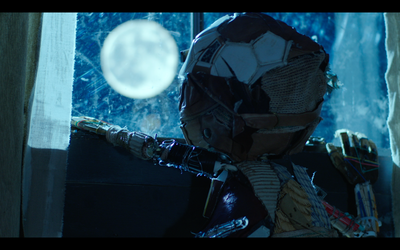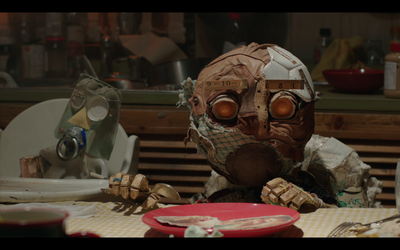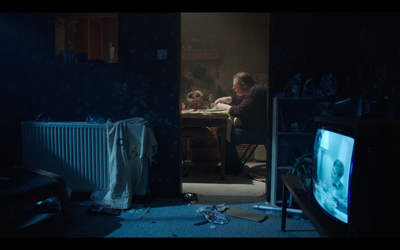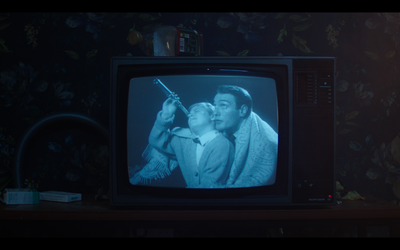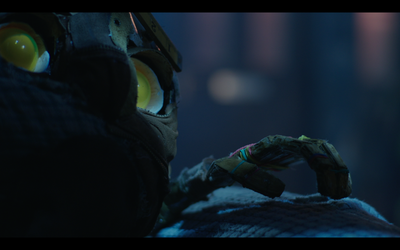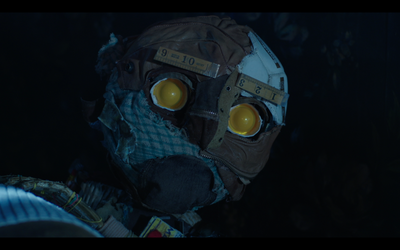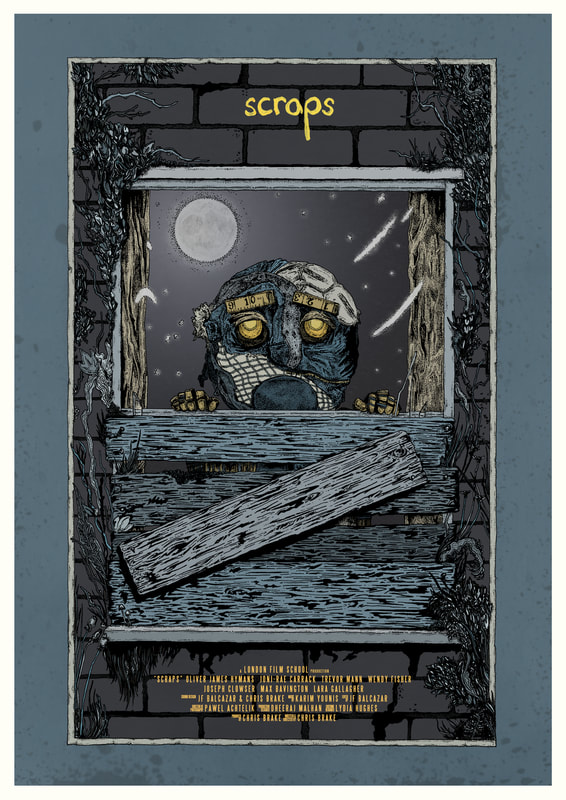scraps
When lonely Gordon Grott builds a surrogate family from household waste, little does he realise that his boy made of trash has a life of his own.
stills
poster
reviews★★★★★ UK Film Review
awardsGlobal University Film Awards
Nominated: Best Film Screentest: The National Student Film Festival Nominated: Best Film, Best Director Vero: Editor's Pick |
trailer
festivals
The Shortest Nights (BIFA Qualifying)
Fastnet Film Festival
Global University Film Awards
Screentest: The National Student Film Festival
Fastnet Film Festival
Global University Film Awards
Screentest: The National Student Film Festival
behind the scenes
DIRECTOR'S STATEMENT
‘Scraps’ started life as an image. An image that I just couldn’t shake; a sculpture of a boy made of trash. It wasn’t the first time I’d considered using household rubbish as an art material, indeed back when I studied sculpture as an art student it was very much my weapon of choice. But the idea of a boy made of trash felt like it needed to be something more than a static lump in a gallery. He needed to be human. He had a story that needed to be told.
I started thinking about what kind of person would create a boy from trash, and why. Eventually the character of Gordon Grott was born; Scraps’ Geppetto-like trash-hoarding creator who starts out as a less than ideal father figure, but ends up reciprocating the familial affection Scraps is looking for. Meanwhile, the surface dysfunction and dereliction of Gordon’s dilapidated household would belie the warmth and well-meaning behind his seemingly odious existence.
The final piece of the story’s puzzle fell into place when thinking about a symbol that would unite the unconventional father and son. Years ago I lived in Arizona for a year, far away from my family back in England. On regular trips camping out in the desert I would often look up at the Moon and take comfort in the fact that even though we were situated thousands of miles apart, if I looked up and my family looked up we’d all be looking at the same bright body in the sky. Similarly, when Scraps discovers the Moon for the first time, via the romantic rose-tinted cathode rays of an old TV, he also discovers a father cementing an eternal connection with his son by telling him that he’ll always be with him as long as they can both see the Moon. When Scraps imitates the scene in real life he creates a bond of his own with a father whose love turns out to be as unconditional as that of his idealised and fictional counterpart. And for me that’s the essence of Scraps’s story; we don’t choose our family, but we certainly make them.
I started thinking about what kind of person would create a boy from trash, and why. Eventually the character of Gordon Grott was born; Scraps’ Geppetto-like trash-hoarding creator who starts out as a less than ideal father figure, but ends up reciprocating the familial affection Scraps is looking for. Meanwhile, the surface dysfunction and dereliction of Gordon’s dilapidated household would belie the warmth and well-meaning behind his seemingly odious existence.
The final piece of the story’s puzzle fell into place when thinking about a symbol that would unite the unconventional father and son. Years ago I lived in Arizona for a year, far away from my family back in England. On regular trips camping out in the desert I would often look up at the Moon and take comfort in the fact that even though we were situated thousands of miles apart, if I looked up and my family looked up we’d all be looking at the same bright body in the sky. Similarly, when Scraps discovers the Moon for the first time, via the romantic rose-tinted cathode rays of an old TV, he also discovers a father cementing an eternal connection with his son by telling him that he’ll always be with him as long as they can both see the Moon. When Scraps imitates the scene in real life he creates a bond of his own with a father whose love turns out to be as unconditional as that of his idealised and fictional counterpart. And for me that’s the essence of Scraps’s story; we don’t choose our family, but we certainly make them.
